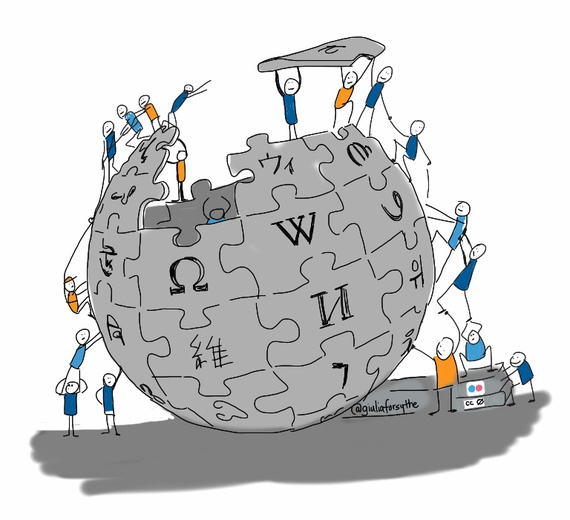This class completely changed my outlook on what academia considers "reliable sources." I hadn't even thought that deeply into the fact that textbooks' biases can render them unreliable sources, and that in some cases, a site like Wikipedia, where thousands upon thousands of people are keeping information and each other in check, can actually be a much more accurate and reliable source than a print document. I think this idea boils down to what our ideas on canon knowledge are; in the past, the half-life of knowledge was much longer, but in today's technologically connected world, print sources lose their accuracy much more quickly. An article on a site like Wikipedia can be continually updated as information becomes more readily available, and doesn't go "out of date" in the same way that a print source does. This fact also puts into perspective the reason why online and print citations usually require the date of publication; it lets the reader know how relevant that source really might be, or if the information presented in the document hasn't been updated in many years.
Overall, I think that teachers in education need to do a more comprehensive job of educating students about reliable sources, and how to actually check if their source is reliable by having them think critically about the biases and possible motivations of publication. If we can teach a generation how to better fact check, we can better equip them to navigate the truths and fallacies of the world.

No comments:
Post a Comment